Ade Fenton is the producer and techno DJ best known for his work with Gary Numan over the past fifteen years.
As well as the albums ‘Jagged’, ‘Dead Son Rising’, ‘Splinter (Songs From A Broken Mind)’ and ‘Savage (Songs From A Broken World)’, there has also been the collaborative soundtrack to the film ‘From Inside’ and ‘Artificial Perfect’, Fenton’s only full length long player to date on which Numan sang four tracks.
Meanwhile, Ade Fenton has also been working with Gary Numan on re-recordings of the albums ‘Sacrifice’, ‘Exile’ and ‘Pure’ which originally came out between 1994-2000. The new album ‘Intruder’ sees Fenton continue his fruitful relationship with Numan which has also previous included joint DJ sets, one notably at John Foxx’s 2010 Short Circuit event at The Roundhouse in London.
The concept of ‘Intruder’ sees Planet Earth expressing emotions of betrayal and hurt as it is attacked by responding with a virus! The songs previewed so far such as the title song, ‘I Am Screaming’ and ‘Saints & Liars’ have been threatening yet anthemic, capturing that sinister synchronicity of art projecting life!
With the release of ‘Intruder’ imminent, Ade Fenton kindly gave an in-depth interview to ELECTRICITYCLUB.CO.UK about his productions past and present for the veteran electronic pioneer.
How did you come to first work with Gary Numan?
We got to know one another through a mutual friend and after an initial period where he mistook my quietness for arrogance, we started to get along very well. We were at a party at his house and he’d heard some stuff I’d been making for ‘Artificial Perfect’ and really liked it. At the time, he’d had a few production issues with ‘Jagged’ and so, slightly worse for wear, offered me the track ‘Scanner’ to work on. After a couple of weeks I delivered it to him, he loved it and we did another few. Again he really liked what I’d done and that was that. Here we are, 15 years or so later and on our fifth album together. Fairytale stuff really when you consider I grew up with posters of him all over my bedroom wall.
You were sort of working on ‘Jagged’ and your own album ‘Artificial Perfect’ simultaneously, how did you keep focus and was there ever a temptation where you might come up with an idea and think “oh, I’ll keep that for my own record!”?
It might have seemed as though there was an overlap but actually, ‘AP’ was long in the making. I’d been working on ‘AP’ on and off for ages, simultaneously managing a pretty full on DJ schedule, but what really got my juices flowing was a break up with a girl at the time. I look back on ‘AP’ now kinda hiding behind a cushion to be honest. I had little experience in writing actual songs at that point, so I really was learning on the job, but it was something I felt I really needed to do. ‘Jagged’ came a bit later, so no there was never that temptation. Even if there had been temptation, this was my first album working with Gary and I wanted to impress him, so if anything it would have been the other way around.
‘Jagged’ polarises listeners, how do you look back on it now?
Well, it will always hold a special place in my heart actually. It’s the album that really started things off for me and Gary in terms of our partnership, so I’m perhaps a bit biased. I do get why some people find it a tough listen, but it was meant to be exactly that. Gary wanted to make his heaviest record yet, so we absolutely went for it.
Interestingly, ‘Jagged’ was one of the last records that Gary mixed himself, as his ears had started to deteriorate by then, so some of the dense feel of the album is partly down to that.
With that in mind, Gary has decided that he’s going to put out another version of it at some point, which will be mixed by Nathan Boddy and myself. It will be interesting to see how much of a difference it makes working on it again all these years later.
Gary Numan was known to be going through a creative rut with the first version of ‘Splinter’ which had been intended to be a very heavy collection of tracks all running at the same mid-paced tempo, but was this concept ultimately flawed?
Good question. No, it wasn’t flawed as at the time, it was what he’d envisaged. As it panned out, ‘Splinter’ became a very personal album to Gary, telling of his story with depression, so there were obviously musical moments of extreme emotions, from the heavy and intense ‘Here In The Black’ to the despair of ‘Lost’.
So how did the return to the unreleased outtakes that had roots in previous albums and other projects happen to produce ‘Dead Son Rising’ in the interim?
As Gary has stated in his autobiography, at that time he was going through a period of depression and the anti-depressants he was taking had had a big effect on him in terms of creativity and work ethic. By this time, we’d become incredibly close both personally and professionally and so it hurt me to see one of my best mates feeling so sh*t. I’d heard some these outtakes and knew straight away that we could turn them into something very cool.
So, he just let me get on with it and eventually the tracks had developed so much, he finally sat up and took notice. At that point, it was finished pretty quickly as the creativity was back, and he was firing on all cylinders. I look back on that period with a mixture of emotions but actually, by the time the album was done, it felt like we’d created something pretty strong.
In what way do you think making ‘Dead Son Rising’ ultimately helped to clear the decks to focus on ‘Splinter’?
After the initial setbacks, Gary and I wrote and developed the songs for ‘Dead Son Rising’ jointly, so for ‘Splinter’, Gary’s mojo had returned and it was very much a Gary Numan album, with me producing his songs. His depression had, inadvertently, provided a wealth of feelings to inspire ‘Splinter’ and once he started to send me the demos, I felt he was back. Clearly, the difficulties he’d experienced in making ‘DSR’ had proved cathartic and so everything, from the ‘Splinter’ concept to the songs to the imagery, was clear in his head from day one.
‘Splinter’ eventually became an album of varying tempos with ‘Who Are You’ being a quite fast paced surprise. You love techno but it doesn’t really permeate as such into Numan’s music, or does it?
There are perhaps very subtle hints at what I used to make in my techno days, but I’ve never allowed it to become a feature of Gary’s music, that just wouldn’t be right. But, my understanding of that kind of groove certainly helps with tracks like ‘My Name Is Ruin’, ‘The Fall’ and ‘Love Hurt Bleed’ for example. The heavy kicks and basslines in those tracks certainly lean on the power that a four-to-the-floor groove can create.
With the ballad ‘Lost’, how did you manage to persuade Numan to use his voice naturally with a minimum of effects?
Lots of arguments! Well, maybe a couple. In my opinion, and certainly the position I took at the time, was that the story that song tells is exactly why Gary’s vocal should be exposed and almost naked. He’s laying it all on the line, telling us all what happened in his life, so let’s have the vocal upfront and not swathed in reverb and delay. It should sound as though Gary’s in the room with you, two feet away. I love that song, and unusually for me, I can still go back to it now and honestly say I don’t think I’d produce it any differently.
‘My Last Day’ was an appropriately apocalyptic end to ‘Splinter’, a variation on the Polymoog “vox humana” sound dominates the track, but how did you go about reconstructing your interpretation of this texture?
Cor, these are great questions. For starters, that song, as you may know, is about someone Gary knew who was diagnosed with terminal cancer. Imagine knowing your last day on earth is just around the corner. Imagine knowing you won’t get to see your kids grow up.
What would your last day be like and what would you say? These are all almost unbearable questions that some people have to face. So, as a producer how do you create those feelings through music? Gary and I talked a lot about that before we made ‘My Last Day’. I found it incredibly hard to work on that song, not musically or technically, but emotionally, I was a wreck. It’s such a beautiful song, incredibly sad, yet we felt like it should have this enormous and grandiose ending.
Gary had sent me the demo with the Moog style string sound dominating the mix, so for me it was a case of building on that. The sound Gary used was a patch from Spectrasonics Omnisphere and I added my own by creating a patch on my Access Virus Ti, which I used a lot on ‘Splinter’.
The ‘Savage’ album managed to be dark and intense but the more metal elements of previous long players were dialled down this time round, had that been a conscious decision?
Kind of. It wasn’t a pre-meditated decision, but it became obvious after song two or three that this wasn’t going to be that kind of album. I remember that we worked on ‘Bed Of Thorns’ first, of which Gary’s demo had been very Middle Eastern flavoured. I don’t remember which came next, but as the demos flowed in from him, we talked about it and both agreed that this album should be predominantly electronic. The power would come from big synth bass sounds rather than thrashy guitars in the most part. Ironic and frustrating then, that we were disqualified from being number one in Billboard’s Electronic Chart for not being electronic enough. Ridiculous.
When ‘And It All Began With You’ premiered, many listening were held in their tracks, a ballad as good as anything on ‘Telekon’, how did it come together as a recording?
Yeah, it’s another beauty isn’t it. When Gary sent me the demo, it blew me away. The vocal range reminded me of Chris Isaak, so the idea was very much to compliment that by using Steve Harris to create some guitar textures which would tug at the heart strings and we achieved that using the fantastic Eventide H9.
It was then a case of keeping the other elements really subtle, from the gentle and very simple drum groove to the random apreggiated synth pattern. I’m not sure if anyone noticed but I also recorded a thunder storm and ran it through the entire duration of the track. It seemed to add a lovely texture to everything else that was going on.
‘When The World Comes Apart’ managed to combine the classic synth elements of Numan with his more industrial rock sound successfully, is it a battle in the studio to reach this kind of compromise aesthetically?
Technically, it’s not a difficult thing to achieve but the challenge is getting it to sound contemporary. As most fans know, since I started working with Gary, I’ve tried to re-introduce some of the classic Numan sounds, but I’m resolute in making sure it never sounds pastiche. So, vocals at the top of the mix, anthemic string sounds, and synth bass sounds driving the songs. I think we’ve managed to achieve a modern sound, with subtle hints towards Gary’s legacy.
‘Savage’ proved to be Numan’s most successful for years plus there were still great songs like ‘It Will End Here’ left over. Had this been a comparatively straightforward album to make compared with the others, particularly in terms of studio rapport?
‘It Will End Here’ wasn’t left over, it was written specifically for the ‘The Fallen’ EP. It was only straightforward in the sense that we completed it from start to finish in 7 or 8 months, whereas ‘Splinter’ for example, had taken around 18 months. I’m not sure whether that was down to any kind of studio rapport though.
During the making of ‘Splinter’, Gary had moved to LA, so clearly that hindered its progress. With ‘Savage’, we absolutely nailed our working process and it came together quite quickly. Over the years, we’ve obviously developed level of trust for one another, so we generally leave one another to do our thing, then come together at the crucial stages.
So is the new Gary Numan album ‘Intruder’ part of a ‘Broken’ trilogy?
No. Although ‘Intruder’ is another theme based album, it’s definitely the next step rather than an additional piece of that ‘Broken’ jigsaw. ‘Intruder’ has a different feel to it than ‘Splinter’ and ‘Savage’, the use of incredible musicians like Gorkem Sen and Elizabeth Bernholz and a slightly different approach to creating the sound palette, sets it apart from the previous two.
What were your own first synths and what are your studio tools, keyboards and software of choice these days?
Crikey, well my first ever synth was a Korg Poly 800, many, many years ago. These days my studio is a mixture of analogue and digital. My DAW of choice is Logic Pro, and has been since Logic 5 I think, which I run on a Mac Pro. I run a huge selection of software synths and FX, including Spectrasonics Omnisphere and Trilian, the full NI suite of which Reaktor and FORM are my weapons of choice, a big Arturia collection with my go to instruments being the Buchla Easel, SEM V and Pigments, U-he’s Zebra and Zebra HZ, FXpansion’s Strobe and Cypher and for software processing I use Soundtoys, Waves etc. amongst many others.
On the hardware side, I use Arturia’s fantastic PolyBrute and MiniBrute 2S, with a MatrixBrute Noir on order (yippee), Analogue Solutions Leipzig-S and Vostok Deluxe, Access Virus Ti2, Waldorf Blofeld, Elektron Analog Keys and a MFB Urzwerg Pro for step sequencing.
My MIDI controller keyboard is a NI Komplete Kontrol S61 and I also use a Maschine Mk3 for making beats. For processing, I use an Eventide Eclipse and a Sherman Filterbank. Last but certainly not least are my beloved speakers, which are the PMC 228’s.
On ‘I Am Screaming’, the classic Numan elements of electric piano and drum machine shape the intro, but there’s this new element of Turkish musician Gorkem Sen bringing a Yaybahar to the palette. The melodies of Middle Eastern music have been a feature in Numan’s music over the years in viola or software form, but what inspired using an actual traditional ethnic instrument and what were the challenges of recording it?
Gary had spotted a video on YouTube of Gorkem playing the Yaybahar and sent it to me. We were both blown away by the sound this thing was making, so I suggested getting in touch with Gorkem. It took a bit of time to sort out, but eventually Gorkem agreed to do it.
Gorkem recorded the Yaybahar at his place and sent me the stems. It was pretty straightforward and we’re eternally grateful to him for allowing us to feature his unique instrument on the album.
Elizabeth Bernholz aka GAZELLE TWIN features on the ‘Intruder’ album too and she has magnificent haunting vocal range. With everything going on, did she have to be recorded remotely? What challenges does this present to you as a producer?
She did yes. I’ve known Elizabeth for a few years now. She’s a genius and I’m a huge fan of her work and everything she creates, both sonically and visually. She recorded her vocals remotely at her studio pretty late in the day actually. That was because we were still tweaking away at the tracks and we wanted to have a clear idea of what we thought would work for her.
I’d had a chat with her prior to her recording her stuff, so she knew which direction we wanted it to take, but honestly, when she sent the vocals back for ‘The End Of Dragons’, I sat in my studio screaming “f****ccckkkkk!” very loudly. We’d made a fairly grandiose, orchestral sounding intro to the piano version of the song, but when she added her immense vocals to it, I nearly fell off my chair. I can’t thank her enough for the unique layer she’s added to the album and I hope it’s the first of many collaborations with her. Recording remotely wasn’t really a challenge with her, or with any of the other musicians on the album. It’s not like we had a choice, so we just got on with it.
Which track from ‘Intruder’ has been your favourite to work on?
Tough question, so I’m going to have to choose two. ’I Am Screaming’ and ‘The Gift’. I loved the challenge of introducing some of the elements you mentioned in a previous question to this album’s sound.
As a producer, I’m very aware that my priority is to deliver what Gary wants, not what I want.
But, because of the trust I mentioned previously, he allows me to try stuff, some of which sticks and some of which doesn’t. So, using a CR-78 and a modern take on the Roland CP30 piano sound was something I wasn’t sure Gary would go for, but running it through some heavy tape saturation and Soundtoys Decapitator gave it a lovely bite. I think I enjoyed those tracks in particular because there’s a lot of space in the verse sections to be able to experiment with sound design. Also, Gorkem’s contribution to ‘The Gift’ especially, takes it to another level altogether.
What next for you? Will there be a full length follow-up to ‘Artificial Perfect’ and are there any guest vocalists you have in mind?
I really don’t know about that. I have no desire to do a follow up, but I would like to work on some more collaborations. I’ve been working on a score for a boxing documentary called ‘In The Company Of Kings’ recently, that’s pretty much finished now so I think it’ll be a collaboration, then another Gary album.
ELECTRICITYCLUB.CO.UK gives its grateful thanks to Ade Fenton
Additional thanks to Steve Malins at Random Management
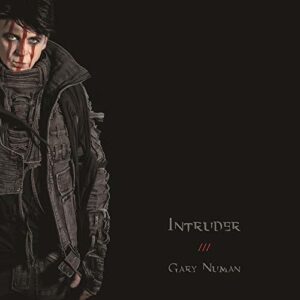 ‘Intruder’, the new album from Gary Numan produced by Ade Fenton is released by BMG on 21st May 2021, info on available formats at https://garynuman.com/
‘Intruder’, the new album from Gary Numan produced by Ade Fenton is released by BMG on 21st May 2021, info on available formats at https://garynuman.com/
‘From Inside’ is still available as a CD or download from https://garynuman-adefenton.bandcamp.com/
https://www.facebook.com/adefentonproduction/
https://www.instagram.com/adefentonofficial/
Text and Interview by Chi Ming Lai
16th April 2021


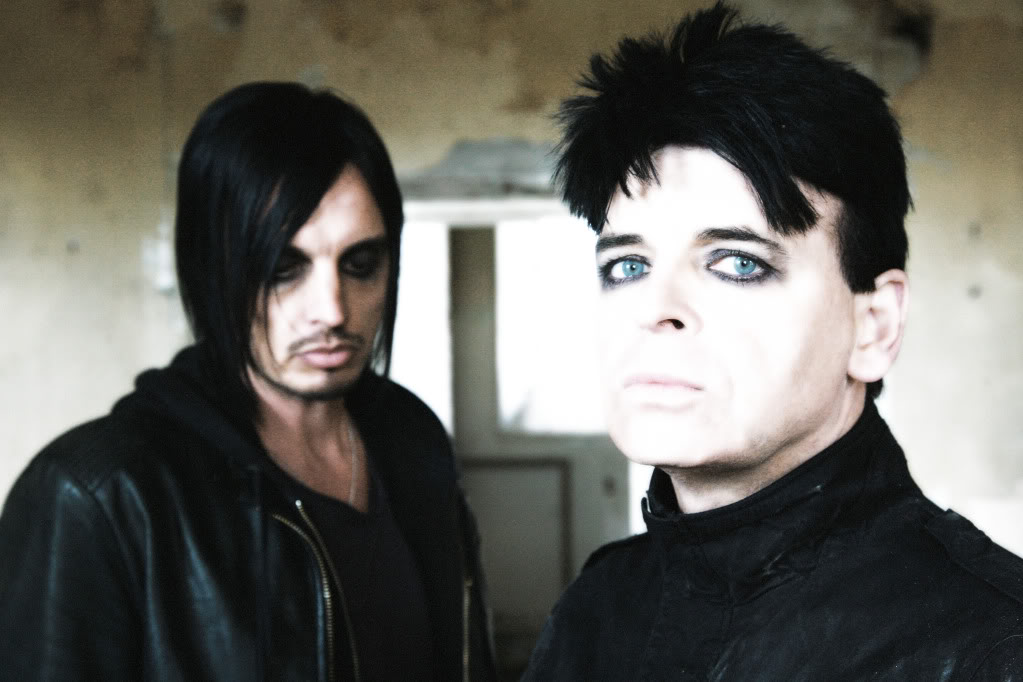
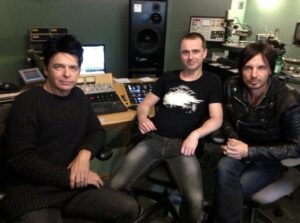
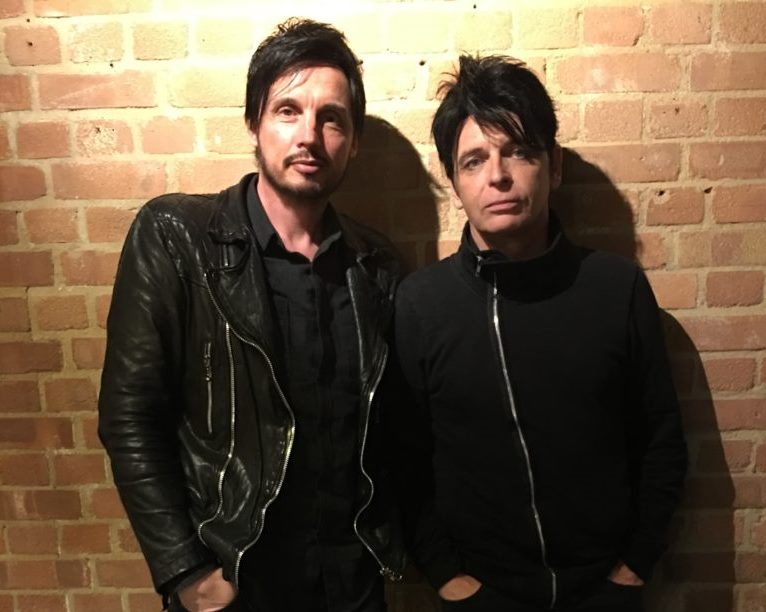
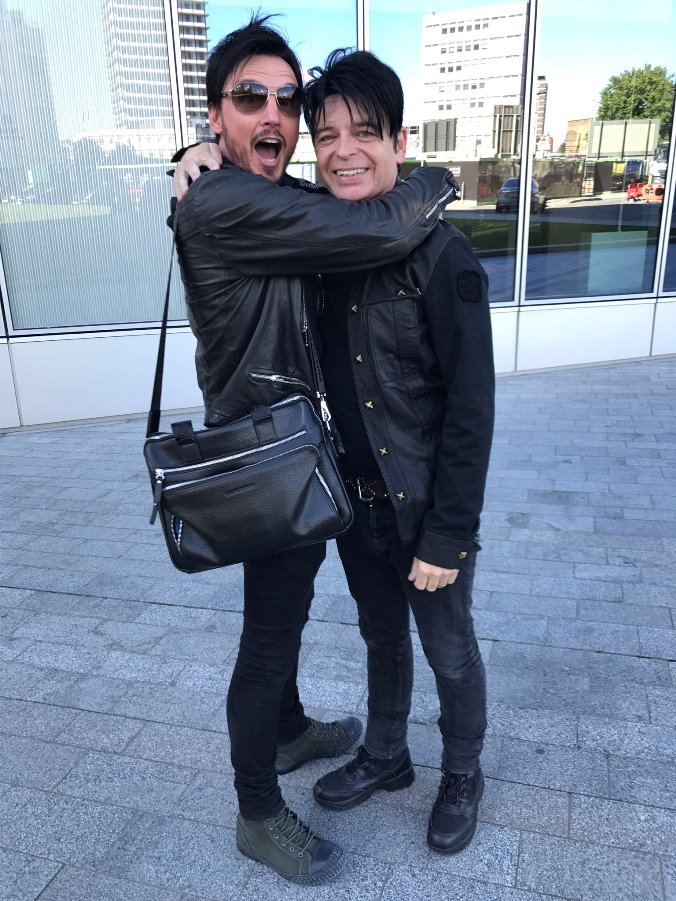
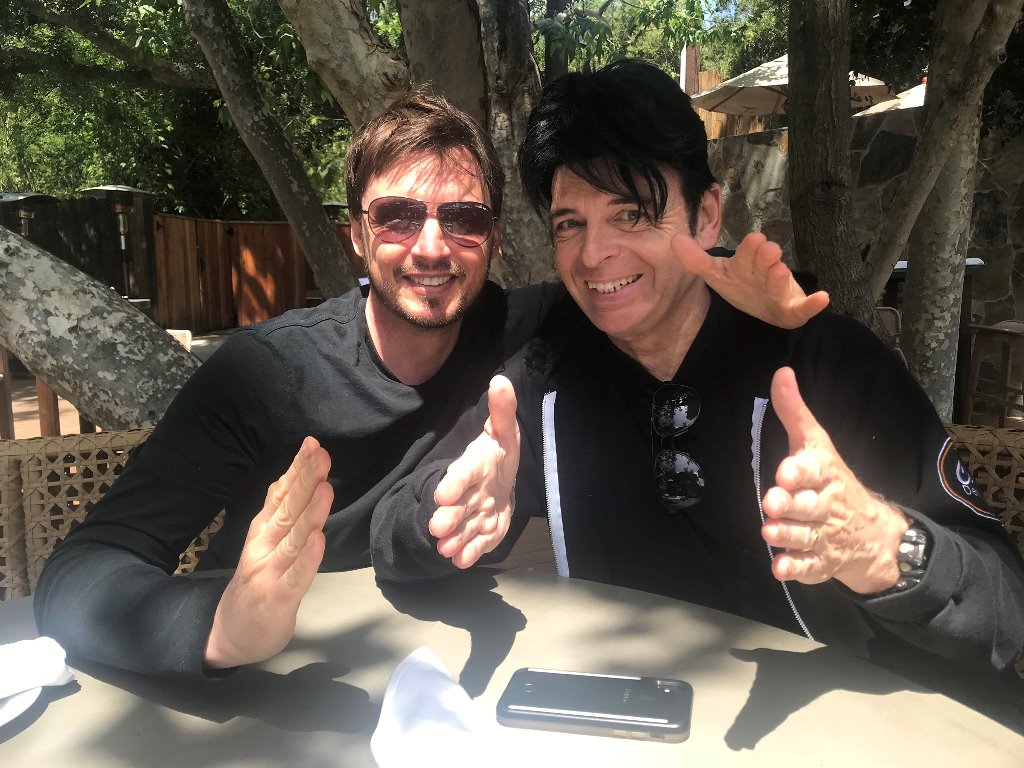
Follow Us!